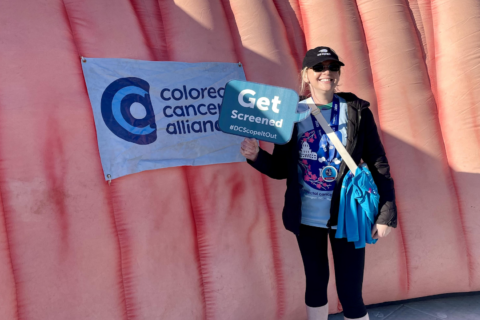When he was only a middle schooler, Ed Gadson made a decision that began a decades-long battle.
“I made a choice to stick a needle in my arm, and it would be almost 50 years before I put that needle down,” he said.
Inside that needle was heroin. Gadson said that decision led to a life with one focus — trying to get his next fix.
“I couldn’t live,” he said. “I spent a lot of time in jail and prison and on the streets being homeless, and it was the life that I was living that was killing me.”
The habit would result in Gadson contracting HIV and several other illnesses, which he still lives with almost 30 years after he quit heroin in 1993.
On Monday, which was International Overdose Awareness Day, Gadson shared his story with others with the hope that it might help give others the strength to stop.
Gadson said he suffered overdoses during his time using heroin. But time after time, he said, the addiction was so powerful that he continued to use it. He recalls one overdose in which a doctor told him he had developed a heart infection because of his drug use.
“When I went to the hospital, they told me that I have endocarditis and it could be fatal. I left the hospital in two days because I had to get back to the streets,” he said.
At Marvin Gaye Park in Northeast D.C., Gadson told members of the community his story, and he lent a helping hand and judgment-free ear to those who might be involved in an all-too-familiar battle.
Since getting clean, Gadson has spent his life helping others and now works for D.C.-based HIPS, which offers assistance to addicts.
Jessica Kiaraliza Martinez, HIPS’ methamphetamine specialist, is familiar with the tough fight against a drug addiction. While a student at George Washington University, she struggled with an addiction to meth.
“The opioid overdose epidemic has taken charge where we’ve forgotten about other drug users,” Kiaraliza Martinez said.
But she does believe a national spotlight on opioid addiction — and pushes by elected leaders to end it — have helped shed light on other drug addictions.
“There’s been a new avenue to present other forms of drug use and what do those overdoses look like, how can we prevent those,” she said.
Attention given to the opioid pandemic has led to a change in culture, where more people are likely to spot and help others who they see suffering from a drug overdose, she said. Yet there is still a lot more that isn’t widely known about what happens to someone suffering from an overdose.
“It could be a heart attack, it could be a stroke, it could be pulmonary embolism, and it can even be an episode of psychosis,” she said.
Kiaraliza Martinez and Gadson both now work with HIPS with the goal of helping others. For Gadson, he learned during his fight that alone, he couldn’t kick the dangerous habit.
“I couldn’t do it by myself, so I had to turn to others that have already walked that step, walked in that place, and I followed them,” said Gadson.
Both Gadson and Kiaraliza Martinez say people suffering from a drug addiction should turn to others for help, because many organizations including HIPS are available and willing to help.
EDITOR’S NOTE: The name of the university Jessica Kiaraliza Martinez attended has been corrected.








